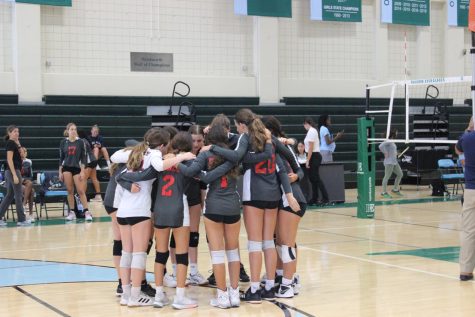Fayola Nicaisse’s Haitian eden
Fayola Nicaisse’s compassion and determination to preserve the Haitian presence in Florida is solidifying Little Haiti as apart of Miami’s history.
Fayola Nicaisse (left) and former commissioner Jeffery Watson (right), with whom the street sign change was completed.
Founder and owner of revolutionary cosmetics line Ébène Naturals, Fayola Nicaisse is a Creole immigrant who has had a tremendous impact on the preservation of Little Haiti.
After leaving Haiti in 1968, Nicaisse and her family traveled from city to city, finally settling in Miami in 1989. Having grown up in a home flooded with plants, her mother and father made natural concoctions for anything, from a rash to the flu, sparking Nicaisse’s interest in plants and their benefits. While working as a model, she began exploring the benefits of herbs and vitamins that hydrated her hair and helped to counter the daily ironing, blow drying, teasing and makeup, typical of the industry.
In 1999, Nicaisse took all of her recipes and converted them into a brand. She constructed the line, thought of the name and designed the logo before presenting the idea to Whole Foods, who immediately put Ébène Naturals on their shelves and on the map. Ébène then became the first black-owned, Haitian plant-based brand for natural hair on the market.

“I had just added baby products to my list of recipes to help combat [my daughter’s] eczema. Other mothers were asking for them anyway and I was also selling my hair products to friends, make-up artists and fellow models, so I thought ‘why not.’” Nicaisse said.
In 2021, Nicaisse joined the Little Haiti Revitalization Trust, an organization that works to make a difference in Little Haiti by educating Haitians about their rights and resources. Nicaisse changed NE 59th Street’s name to Viter and Maria Juste Way on May 14, 2022, in an effort to slow the gentrification that has been displacing residents and businesses and to honor the pair known as the father and mother of Little Haiti. During his time sitting as Chair of the LHRT, Carl Juste, their son, was impressed by Nicaisse’s accomplishments and asked her to join their organization. Now, Nicaisse is the Vice Chair of District five.
“Even if there was to no longer be a Little Haiti 30 years from now, that street sign is a marker of our presence and our history in the area,” Nicaisse said.
In May 2022, Nicaisse also joined the Haitian Cultural Arts Alliance with the goal of preserving Little Haiti’s rich heritage and sharing the Haitian experience through arts and culture. Nicaisse is avid about the conservation of Little Haiti because it is a sanctuary for many Haitian immigrants, including her family. Without the dedication of Nicaisse and her fellow members, Little Haiti’s culture would likely be watered down by upcoming initiatives intent on renovating the neighborhood, which do not prioritize keeping the cultural identity of the community.
“What is important to me is for our legacy to be carried on. Our culture is very rich in history and traditions; they need to be preserved,” Nicaisse said.
Your donation will support the student journalists of Coral Gables Senior High School. Your contribution will help us cover our annual website hosting costs.








